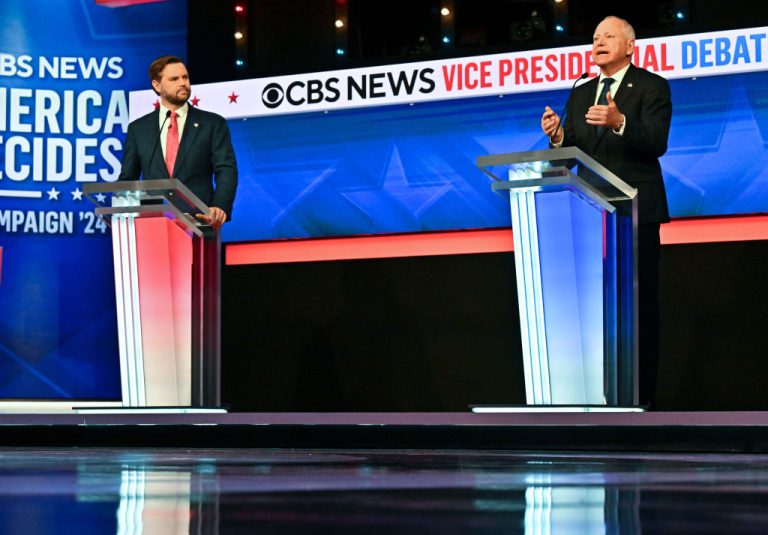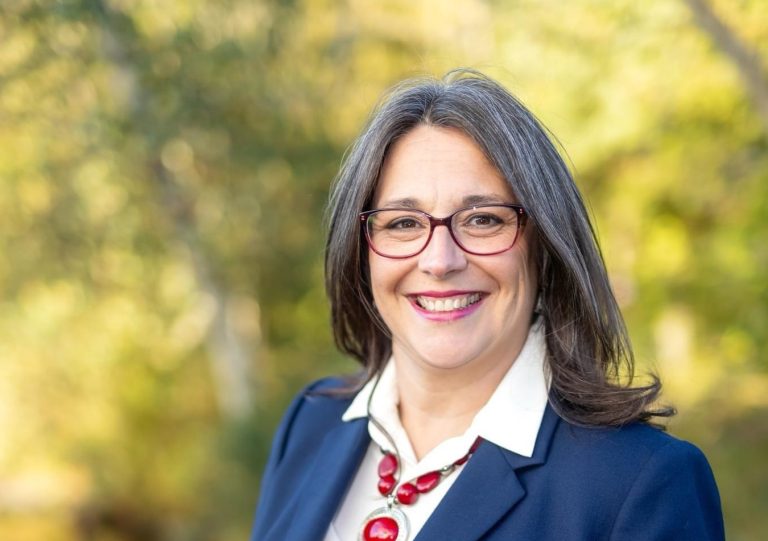On Tuesday, Oct. 1, Ohio Sen. J.D. Vance and Minnesota Gov. Tim Walz faced off in what was likely the last debate between candidates before the upcoming U.S. general election on Nov. 5.
The evening was filled with pointed exchanges and policy contrast, showcasing each candidate’s different vision for the nation’s future. Vance and Walz sparred over a number of issues including abortion, immigration, and democracy, in what was a far more cordial exchange than what was seen between their running mates, Donald Trump and Kamala Harris, in last month’s presidential debate in Philadelphia.
The 90-minute debate was moderated and broadcast by CBS News from their studios in New York City. The moderators were CBS Evening News anchor Norah O’Donnell and Face the Nation host Margaret Brennan. Similar to the presidential debate, there was no live audience, moderators had the ability to mute the candidates’ microphones, and there were no opening statements.
Vance, 40, and Walz, 60, avoided directly attacking one another, but did not hold back when criticizing each other’s running mate. For the most part, policy tended to take center stage.
Both men were questioned about past missteps, with Vance, previously a “never Trumper,” having to explain his shift in stance, while Walz was pressed on his misleading claim that he was in China during the 1989 Tiananmen Square massacre, when in fact he was not.
Success
You are now signed up for our newsletter
Success
Check your email to complete sign up
It’s widely believed that Vance came out on top, after Walz appeared shaken and nervous a number of times during the debate. He was repeatedly mocked on social media platforms for referring to himself as a “knucklehead” and for misspeaking, saying that he has become “friends with school shooters.”
RELATED:
- Trump and Harris Spar in First Debate Ahead of the 2024 Presidential Election
- Trump and Harris’ Vastly Different Visions for the Future of America’s Economy
Some tense moments
Throughout the debate each candidate conceded multiple times that they agreed on some issues, at least in part, and inflamed statements targeting one another were, for the most part, absent from the debate. However, some of the more tense moments emerged as a result of interactions between the candidates and the moderators.
On immigration, Vance cited the example of Springfield, Ohio, where he says 15,000 illegal Haitian migrants are contributing to problems with housing, employment, and affordability.
Despite the moderators previously saying they were not going to fact-check any statement made by either candidate, the moderators stepped in and argued that the migrants had “legal status.”
Vance, defying the moderator’s requests to move on, argued that the “legal status” the Haitians have was created by the Biden administration and was easy to receive by simply registering themselves on a mobile app.
The moderators chose to mute Vance’s microphone and move on.
For Walz, perhaps his poorest moment came after he was asked by the moderators about his past claim of being in China during the Tiananmen Square massacre in 1989.
His initial, nearly two minute long answer, avoided answering the question and when he was pressed for an answer he stumbled and said, “I’m a knucklehead at times … I will talk a lot. I will get caught up in the rhetoric.”
READ MORE:
- Fed Announces First Rate Cut Since 2020, Lowering Interest by 0.5 Percent
- Trump Says Attempts on His Life Driven by Democrat ‘Rhetoric and Lies’
- Manhattan US Attorney’s Office Spokesman Blasts Bragg Over Trump Prosecution in Secret Recording
Favorability for both candidates rise
However, each candidates’ performance appears to have pushed up their favorability ratings among the American public.
Post-debate polling, conducted by CBS News and YouGov, found that Walz’s favorability increased from 52 percent to 60 percent and Vance experienced a similar increase from 40 percent to 49 percent.
The poll was among 1,630 likely voters who watched the debate.
Both candidates also saw their unfavorability ratings fall, with Walz’s rating shrinking from 41 percent to 35 percent, and Vance’s rating dropping from 54 percent to 47 percent, according to the same poll which had a margin of error of ±2.7 points.
Viewers also found that the debate was mostly positive, with 88 percent seeing it as generally positive. Most thought each candidate was well prepared and sounded more reasonable than extreme.
The most recent presidential polls published by YouGov indicate that Harris is leading Trump by around three points, while polls published by Insider Advantage has Trump leading by one point.
Overall, numerous polls show a neck-and-neck presidential race, with both candidates rallying strong support in key swing states, setting the stage for what will most likely be a dramatic and unpredictable election outcome.







